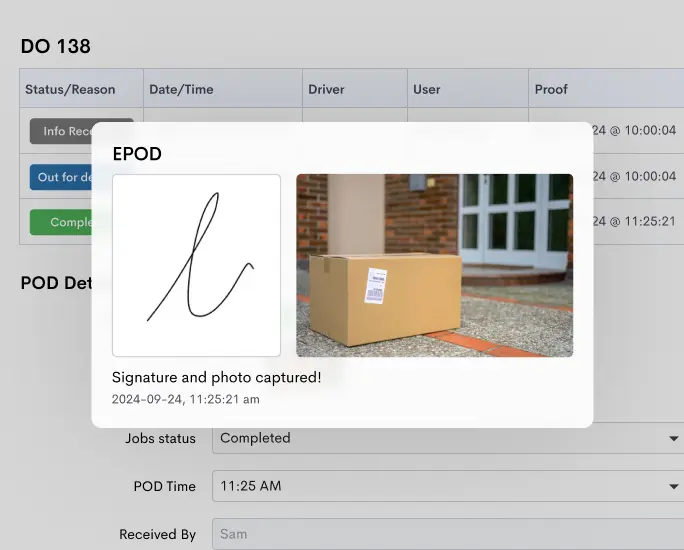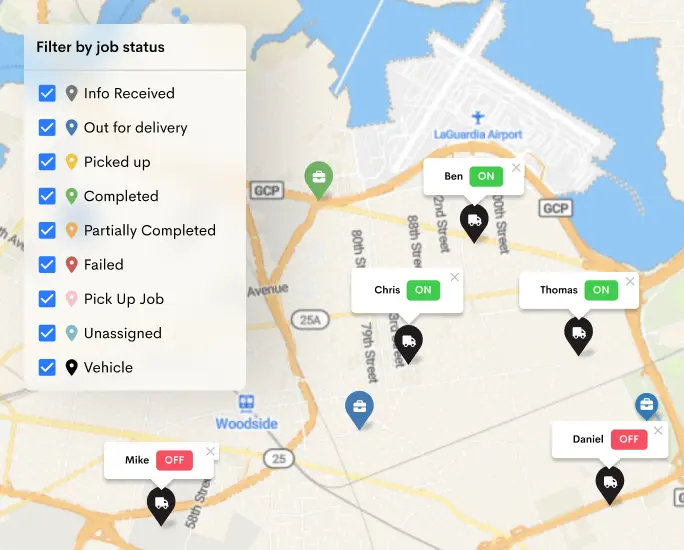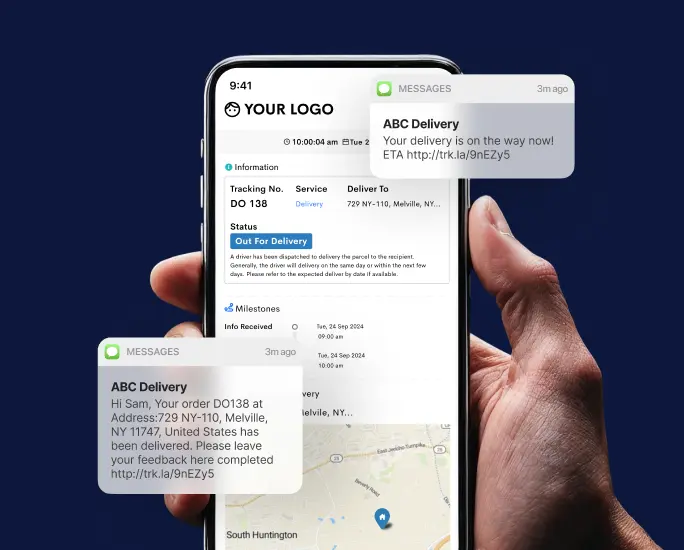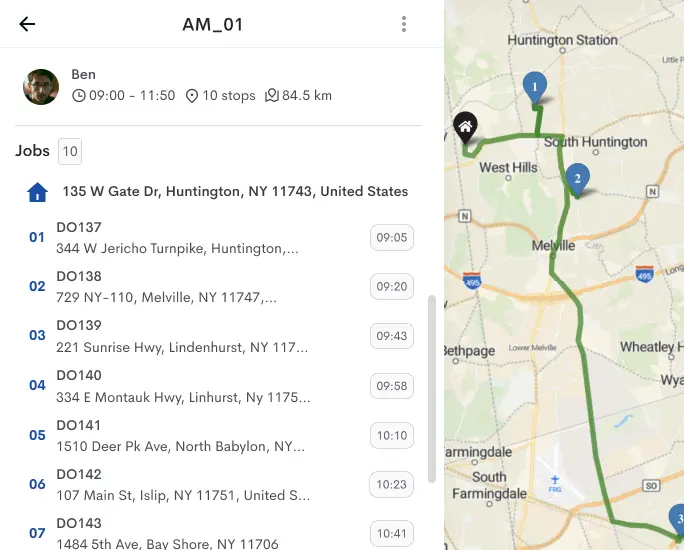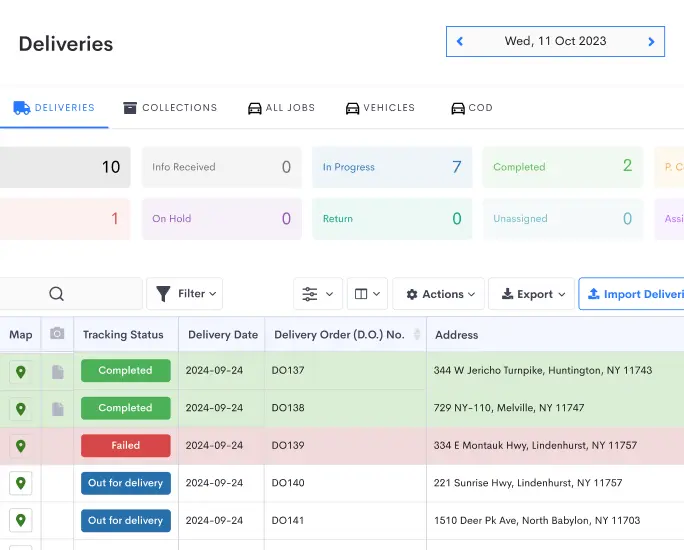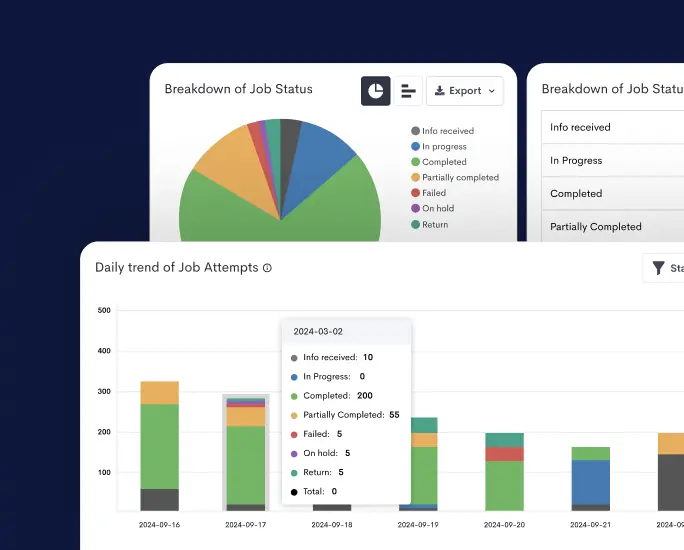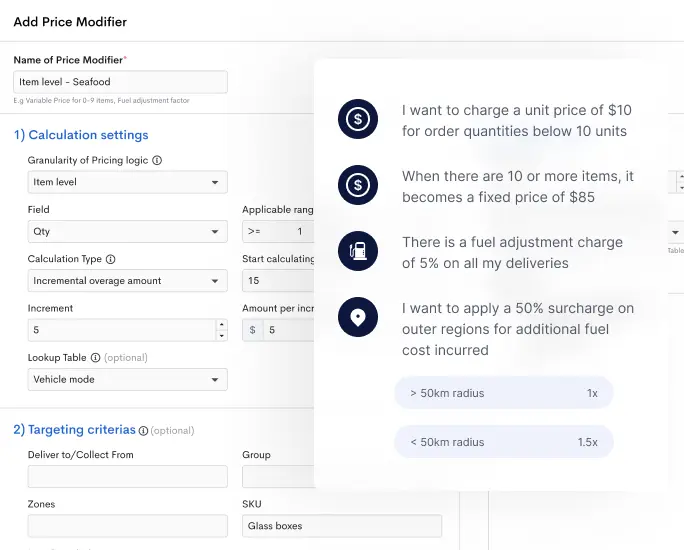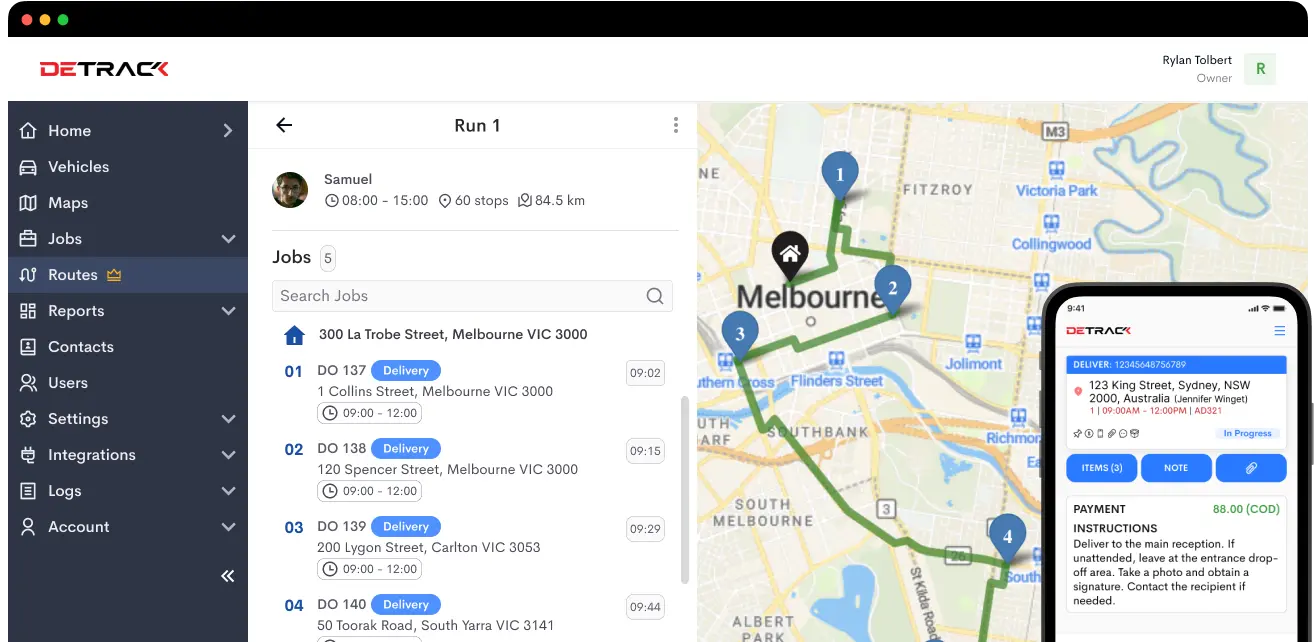Efficient logistics planning has become the linchpin of successful last-mile delivery operations. Whether you’re a global e-commerce giant or a local business striving to meet customer demands, mastering the intricacies of logistics planning can be the key to enhancing your delivery game and outperforming the competition.
This comprehensive guide will delve into the fundamentals of logistics planning, uncover strategies to optimize your last mile delivery processes and explore the latest trends and technologies shaping the logistics landscape.
Join us on a journey through the intricacies of logistics planning and discover how it can revolutionize your approach to the final stretch of the delivery journey.
What Is Logistics Planning?
Logistics planning is a crucial process in supply chain management involving the strategic coordination and organization of various activities required to move goods, information, and resources efficiently from their origin to their destination.
It encompasses a wide range of tasks, from procurement and transportation to inventory management and distribution, all aimed at ensuring that products reach their intended customers in a timely and cost-effective manner.
Effective logistics planning involves several key elements:
- Demand Forecasting: Accurately predicting customer demand is fundamental. It helps determine how much inventory to maintain and when to reorder supplies.
- Inventory Management: Balancing stock levels to meet customer demand without overstocking or understocking is crucial for cost control.
- Transportation: Selecting the right modes of transportation (e.g., truck, ship, air, or rail) and optimizing routes to minimize transit times and costs.
- Warehousing: Efficiently storing and managing inventory, including order picking and packing, to expedite order fulfillment.
- Information Systems: Utilizing technology and software to track shipments, manage inventory, and facilitate communication across the supply chain.
- Risk Management: Preparing for potential disruptions, such as natural disasters or labor strikes, and having contingency plans.
Ultimately, logistics planning aims to enhance customer satisfaction and reduce operational costs, and optimize resource utilization. In an increasingly global and competitive business environment, effective logistics planning is critical for companies seeking to gain a competitive edge and ensure the seamless flow of goods and services to their customers.

The Importance Of a Proper Logistics Plan
A proper logistics plan is paramount for businesses and organizations due to its multifaceted impact on their operations and overall success. Let’s delve into greater detail about the significance of a well-structured logistics plan:
Streamlining Operations
The complexity of modern supply chains necessitates a well-orchestrated logistics plan. It involves meticulously mapping out every step in the supply chain, from sourcing raw materials to delivering finished products to customers.
By doing so, it identifies potential bottlenecks, redundancies, and inefficiencies. As a result, operations become more systematic, eliminating confusion and delays. This streamlining enhances agility, responsiveness, and overall efficiency in delivering goods and services.
Reducing Operational Costs and Waste
Inefficient logistics can lead to unnecessary costs, such as excessive inventory holding, suboptimal transportation routes, or overstaffed warehouses. A robust logistics plan, however, optimizes resource allocation and inventory management, leading to cost reductions.
Reduced operational costs enhance profitability and enable businesses to allocate resources to strategic investments and initiatives, fostering long-term growth.
Enhancing Customer Satisfaction
The logistics plan is pivotal in meeting customer expectations. Timely and reliable deliveries are essential for customer satisfaction.
When logistics operations are well-executed, products are available precisely when and where customers need them. This reliability builds customer trust and loyalty, potentially leading to increased sales and positive referrals.

Key Elements Of A Comprehensive Logistics Plan
A comprehensive logistics plan encompasses various critical elements that work together to ensure efficient supply chain operations. Here are key components of such a plan:
Demand Forecasting
Demand forecasting is the cornerstone of effective logistics planning. It involves analyzing historical data, market trends, and customer behavior to predict future demand accurately. This process is multifaceted and may incorporate statistical methods, machine learning algorithms, and qualitative assessments.
Accurate demand forecasting enables businesses to anticipate market fluctuations, plan production schedules, and optimize inventory levels. It also aids in aligning procurement activities with expected demand, reducing the risk of overstocking or understocking.
Advanced demand forecasting models consider seasonality, macroeconomic indicators, and regional variations to provide a more granular and reliable forecast.
Inventory Management
Inventory management involves the meticulous control and optimization of the various types of inventory within a supply chain, including raw materials, work-in-progress, and finished goods.
The goal is to balance inventory levels to meet customer demand without incurring unnecessary carrying costs.
Effective inventory management employs various techniques, such as ABC analysis, which categorizes items by importance; just-in-time (JIT) inventory, which aims to reduce waste and carrying costs; and safety stock calculations to guard against demand variability.
Implementing these strategies requires a robust inventory management system that tracks stock movements, monitors expiration dates, and ensures optimal storage conditions.
Transportation Management
Transportation management is pivotal in logistics planning, as it dictates how goods move through the supply chain. It encompasses selecting the most suitable transportation modes (e.g., road, rail, air, sea) and optimizing routes to minimize transit times and costs.
Transportation planning also involves carrier selection, load optimization, and route scheduling decisions. In today’s competitive landscape, businesses increasingly leverage technology for real-time tracking and route optimization, enhancing efficiency and providing valuable visibility into shipment status.
Efficient transportation management ensures timely deliveries, reduces operational costs, and improves customer satisfaction.
Supplier and Partner Coordination
Effective coordination with suppliers and partners is essential for the seamless operation of a supply chain. Collaboration fosters strong relationships, transparent communication, and the exchange of critical information.
Businesses coordinating well with their partners can synchronize activities, reduce lead times, and streamline processes. They may also share data on inventory levels, production schedules, and demand forecasts, enhancing overall supply chain visibility.
Supplier and partner coordination extends beyond transactional relationships in today’s interconnected global supply chains. It involves joint problem-solving, innovation sharing, and risk management strategies.
Contingency Planning
Contingency planning is essential to mitigate the impact of unforeseen disruptions, such as natural disasters, labor strikes, geopolitical events, or supply chain interruptions. It involves a proactive approach to identifying potential risks, assessing their potential impact, and developing strategies to ensure business continuity.
Robust contingency plans include identifying alternative suppliers, diversifying logistics routes, and establishing crisis response protocols. In the era of digital connectivity, contingency planning also involves cybersecurity measures to protect against data breaches and cyberattacks.
A well-prepared organization can quickly adapt to disruptions, minimizing operational downtime, maintaining customer trust, and safeguarding its reputation. Contingency planning is a precautionary and strategic imperative to enhance supply chain resilience and ensure uninterrupted operations.

Common Challenges In Logistics Planning
Logistics planning is a complex and dynamic field, and businesses often encounter various challenges in navigating the intricacies of supply chain management. Here are common challenges associated with logistics planning:
Changes in Demand and Market Conditions
The challenge of adapting to changing demand and market conditions is multifaceted. Rapid shifts in consumer preferences, influenced by factors like changing trends, demographics, or unforeseen events (e.g., pandemics), can significantly impact supply chains.
To address this challenge, businesses need robust demand forecasting models that incorporate real-time data and market insights. Collaborative forecasting with key partners and suppliers can enhance accuracy.
Furthermore, flexibility in production, inventory levels, and transportation modes is crucial to respond promptly to fluctuating demand, ensuring customer satisfaction while avoiding costly overstocking or stockouts.
Geopolitical Events and Their Impact on Supply Chains
Geopolitical disruptions, such as trade tensions, sanctions, or political instability, can potentially disrupt global supply chains. Mitigating these risks involves proactive risk assessment and contingency planning.
Diversifying sourcing strategies, evaluating alternative suppliers or manufacturing locations, and developing agile logistics networks can help businesses navigate geopolitical uncertainties.
Real-time monitoring of geopolitical developments is essential to react swiftly to potential disruptions and minimize their impact.
Ensuring Sustainable Operations
Sustainability is a growing concern for consumers and regulatory bodies. Achieving sustainability goals while maintaining cost-efficiency is a multifaceted challenge.
Businesses must adopt eco-friendly practices throughout the supply chain, including sustainable sourcing, energy-efficient transportation, waste reduction, and responsible packaging.
Integrating sustainability into corporate strategies, along with transparent reporting and adherence to environmental regulations, demonstrates commitment to environmental responsibility and can enhance brand reputation.
Integration of Technology and Digital Solutions
Rapid technological advancements and the integration of digital solutions into logistics can be both an opportunity and a challenge.
Businesses need to continually assess emerging technologies that can improve efficiency, reduce costs, and enhance customer experiences. Integrating these technologies into existing systems can be complex, requiring careful planning and investment.
However, the rewards include enhanced supply chain visibility, improved decision-making through data analytics, and increased automation of routine tasks, freeing up human resources for more strategic activities.
The Central Role Of Logistics Planning In Modern Supply Chain Management
In modern supply chain management, logistics planning is pivotal, serving as the linchpin that ensures the smooth and efficient flow of products and services from point A to point B. This multifaceted process encompasses a range of crucial components, including demand forecasting, inventory management, transportation coordination, supplier collaboration, and contingency planning.
Together, these elements drive operational efficiency and contribute significantly to an organization’s competitiveness and customer satisfaction.
For those seeking to enhance their logistics planning capabilities, Detrack offers innovative solutions that streamline delivery tracking, allow for easier job planning, fleet monitoring and customer satisfaction. By harnessing Detrack’s technology, businesses can boost the efficiency and customer-centricity of their logistics planning processes, ultimately propelling their supply chain management into the future.
Explore the possibilities with Detrack today!

